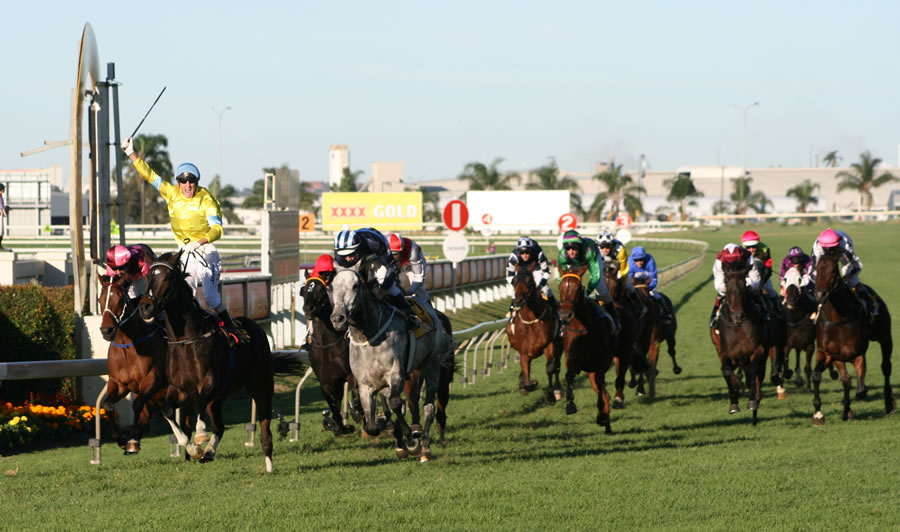Introduction to Australia’s Gambling Regulatory Framework

Gambling has been embedded in the Australian culture ever since 1810 when the first horse
racing event took place. Several years later, the lottery was introduced. In the 1950s,
Australians could enjoy a more modern form of gambling as the first slot machines were
presented to the gambling community. Interestingly enough, the first Australian land-based
casino, Wrest Point Hotel Casino, opened its doors in 1973 in Tasmania.
Currently, the gambling industry in Australia is simply blossoming. Findings show that a growing
number of players participate in some form of gambling. According to the 35th edition of the
Australian Gambling Statistics, the total gambling expenditure throughout the country increased
from $23.694 billion in 2016–2017 to $24.887 billion in 2017–2018. Pokies accounted for the
largest chunk of the country’s GGR.
Whose Responsibility is the Regulation of the Australian
Gambling Market?
Australia has no single authority that regulates the online gambling industry. In that sense, it
reminds us of the complex situation in the United States, where each state has the right to
implement unique laws, but the industry is also regulated on a federal level. When it comes to
Australia, the gambling industry is also subject to two levels of regulations - a Federal and
State/Territory level.
Australia has 8 separate states and each of them has a separate gambling regulator. The ACT
Gambling and Racing Commission operates in the Australian Capital Territory. The gambling
industry in the Northern Territory is governed by the Licensing Commission. The Office of
Liquor, Gaming, and Racing is in charge of regulating the gambling industry throughout New
South Wales. The gambling authorities in South Australia and Queensland are the Independent
Gambling Authority and the Office of Liquor and Gaming Regulation, accordingly.
In Victoria, it is the Victorian Commission for Gambling and Liquor Regulation that is responsible
for the gambling industry throughout the state. The Department of Racing, Gaming, and Liquor
is the authority that oversees the industry in Western Australia. The gambling industry in
Tasmania is in the hands of the Tasmanian Gaming Commission.
What Laws Govern the Industry
As for now, the law that governs the gambling industry throughout Australia is the Interactive Gambling Act (IGA) that was passed in 2001. Under this piece of legislation, both domestic and
offshore operators are not allowed to offer interactive gambling services to Aussies.
The country went an extra mile in an attempt to protect vulnerable players and adopted high
advertising standards. Online gambling commercials targeting Australian residents are also
prohibited. On a more positive note, Australian operators are allowed to offer remote gambling
services to players from other countries than Australia.
This legislation, on the other hand, does not penalize players from Australia who access online
casinos. This means that in the eyes of the law, operators are held liable for offering their
gambling services to Australian-based players. Despite the regulations, a lot of offshore
gambling sites welcome Australian players, some of them even allow Aussies to deposit in their
local currency.
A full report about the legislation in Australia explains that IGA prohibits only interactive
gambling. This means that it does not outlaw all forms of online gambling. For example, online
sports betting is legal throughout the country as long as bets are made before the event kicks
off. In other words, in-play betting is not allowed. Australian lotteries are also allowed to legally
sell their tickets online. On the other hand, IGA outlaws the provision of online scratchcards and
instant-win games.
IGA aims at protecting players from gambling-related problems. Unfortunately, it seems that the
government is unable to stop gambling sites from accepting Australian-based players. Hence,
the government not only fails to protect its players’ interests, but it also loses millions in gross
gaming revenue (GGR).
Land-Based Casino Operations
Land-based casino operations are regulated under the Casino Control Act of 2006 under which
actual gambling establishments are allowed to offer their services to Australian players. Brick-
and-mortar gambling venues are regulated on a state level, meaning that each territory can
adopt a set of regulations under which the industry should operate. Actual land-based casinos
are located in every state and all of them offer a wide range of games.
Slot machines, also known as pokies among Aussies, are the most preferred forms of gambling.
Such machines can be found not only in casinos, but also in bars, pubs, and clubs provided that
they have the needed license. The government recently introduced some restrictions regarding
the use of pokies to curb the escalating rates of vulnerable players.
It is yet to become clear what the future has in store for the gambling industry in Australia, but
experts believe that adopting a more liberal approach is the better option.
|